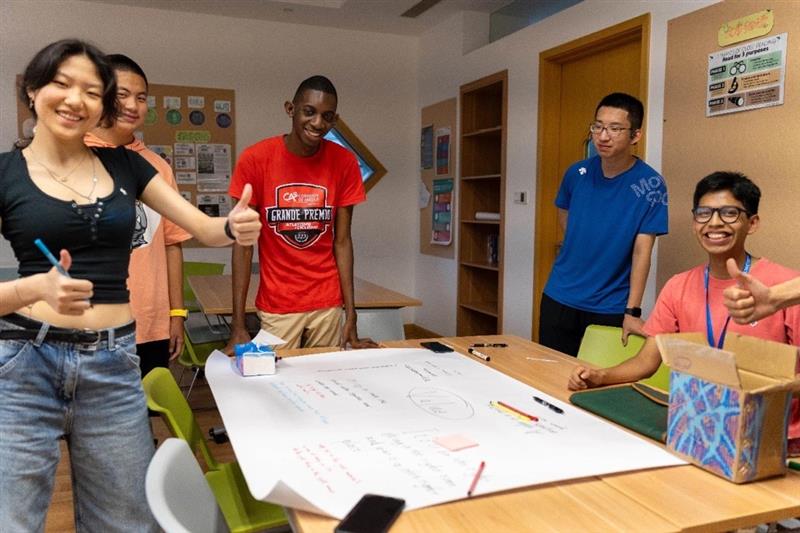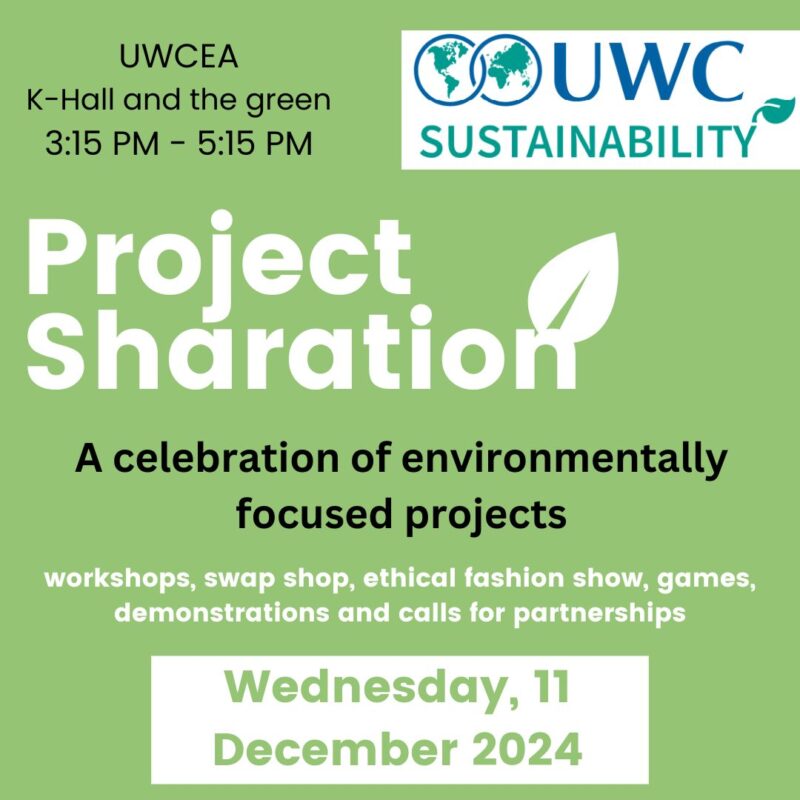
Fostering Sustainability and Inclusivity: UWC Changshu China Orientation Program
Details
As the doors of our school swung open to welcome a diverse group of international students this year, excitement filled the air. We anticipated the arrival of fresh faces, eager to embark on their educational journey at our institution. This year, our school decided to take a step further in embracing the values of sustainability and inclusion, making them integral parts of our orientation program. Sustainability has always been deeply ingrained in our school’s culture and is a cornerstone of the UWC mission. In this article, we’ll explore how our school incorporated sustainability into the orientation program and why it matters.
The Sustainability Council, a dedicated group of students and faculty members, played a pivotal role in infusing sustainability into our orientation program. They organized an informative presentation for the entire school community. This presentation not only highlighted the accomplishments of our school in the realm of sustainability but also outlined the ambitious plans for the upcoming academic year. This session not only educated the newcomers but also reinforced the importance of sustainability among returning students and staff.
To truly appreciate the significance of sustainability, new students were taken on an Eco Tour of our sprawling campus, led by a group of passionate teachers and seasoned DP2 (Diploma Programme Year 2) students. During the tour, students learned about the local flora and fauna, as well as the efforts made to preserve and protect the natural beauty of our surroundings. They were encouraged to actively engage with the environment, fostering a sense of responsibility towards the planet.

Sustainability is not limited to environmental concerns; it also encompasses personal well-being. To address this aspect, a workshop on health and vegetarianism was organized. It aimed to promote healthier lifestyles and raise awareness about the environmental impact of dietary choices.
The workshop delved into the benefits of a vegetarian diet, both for individual health and the planet. After the informative session, students had the opportunity to taste a variety of delicious vegetarian dishes, showcasing that sustainability and culinary delight can go hand in hand.
One of the highlights of our orientation program was the Sustainability Council’s initiative to organize a massive secondhand market. This market was a treasure trove of pre-loved clothes, books, and other items, all available free of charge.

By offering a platform for students to exchange and repurpose items, this event emphasized the importance of reducing waste and embracing a culture of reuse. It not only contributed to sustainability but also fostered a sense of community and inclusivity among students.
Another crucial aspect is the initiation and execution of the orientation planning journey. The narrative commences in March of this current year. During their “Peace and Sustainability” lessons, a group of Foundation program students engaged in brainstorming sessions and conceived an idea: “Could we revamp Orientation Week?” This notion subsequently evolved into the focal point of their “Impact Project,” an evaluative assignment for the course.

Collaborating with Adela Ramovic, the instructor, and Ma Hua, the vice principal, they constituted the core team responsible for organizing Orientation Week. Their collective goal was to craft a captivating and inclusive week for the incoming freshmen this year, with the aim of instilling in them a sense of what it truly means to be part of the UWC movement.
Incorporating sustainability into our school’s orientation program and allowing students to be leaders was a resounding success. It not only educated our students about the critical importance of sustainable practices but also reinforced our commitment to these values as an institution.
By nurturing an understanding of sustainability from the very beginning of their journey, we empower our students to become responsible global citizens who are not only academically proficient but also conscious of their impact on the planet. As we continue to welcome international students into our diverse and inclusive community, sustainability will remain a central pillar of our mission and our orientation program, ensuring a brighter and more sustainable future for all.


